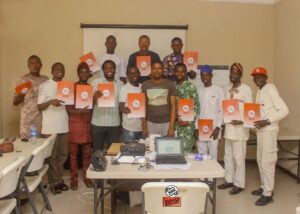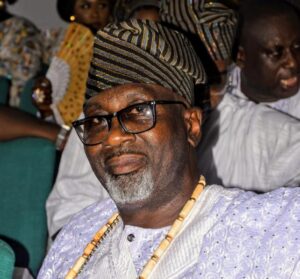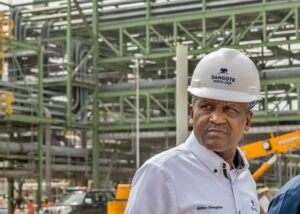The State and Local governments are actually the key to a prosperous Nigeria.
Abayomi Odunowo
In order to achieve rapid development in Nigeria, it is essential that each state establishes a think tank to develop a comprehensive 24-year development plan. This plan should be carefully crafted with input from all stakeholders and must be accepted as the roadmap for progress by all parties involved. By ensuring that any political party or government in power adheres strictly to this development plan, the wastage and mismanagement that has plagued many state governments in the past can be curbed effectively.
The advantages of having a long-term development plan in place are numerous. Firstly, it provides a clear direction for the state to follow, ensuring that resources are allocated efficiently and effectively towards achieving specific goals. With a 24-year timeframe, there is ample opportunity to implement sustainable projects that address the key areas of concern for the state. Education, infrastructure, healthcare, housing, agriculture, technology, and human capital development are all crucial areas that should be prioritized in the development plan.
Education is the cornerstone of progress and it is essential that each state invests significantly in this sector. By improving the quality of education and providing access to all citizens, the state can pave the way for a more skilled and knowledgeable workforce. This, in turn, will boost productivity, innovation, and economic growth.
Infrastructure development is another key area that must be addressed in the development plan. Good roads, electricity, water supply, and other essential amenities are critical for economic development and quality of life. By investing in infrastructural projects, the state can attract more investments, create jobs, and improve the overall standard of living for its citizens.
Healthcare is a fundamental right that should be accessible to all. By improving medical facilities, training healthcare professionals, and implementing outreach programs, the state can ensure that its citizens have access to quality healthcare services. This will not only improve health outcomes but also reduce the burden on the healthcare system.
Mass housing development is essential for addressing the housing shortage in many states. By providing affordable housing options, the state can improve living conditions, reduce homelessness, and stimulate economic growth in the construction sector.
Agriculture and food capacity building are crucial for achieving food security and reducing reliance on imports. By investing in modern farming techniques, improving irrigation systems, and supporting small-scale farmers, the state can boost agricultural productivity and ensure food self-sufficiency.
Technology development and human capital development are also important for driving innovation and economic growth. By investing in research and development, providing training programs, and fostering a culture of innovation, the state can create a competitive advantage and attract more investments in the technology sector.
In conclusion, the establishment of a think tank to develop a 24-year development plan for each state is crucial for achieving rapid and sustainable development in Nigeria. By focusing on key areas such as education, infrastructure, healthcare, housing, agriculture, technology, and human capital development, the state can chart a path towards progress and prosperity for all its citizens. By ensuring that the development plan is adhered to by all parties in power, the state can avoid the pitfalls of mismanagement and wastage that have hindered progress in the past. With a clear vision and commitment to implementation, rapid development can become a reality for all states in Nigeria.
Media Contacts
Otunba Abdulfalil Abayomi Odunowo
National Chairman AATSG
URL: www.aatsg.org.ng
Tel: +2349053535322
Email: nchairman@aatsg.org.ng







